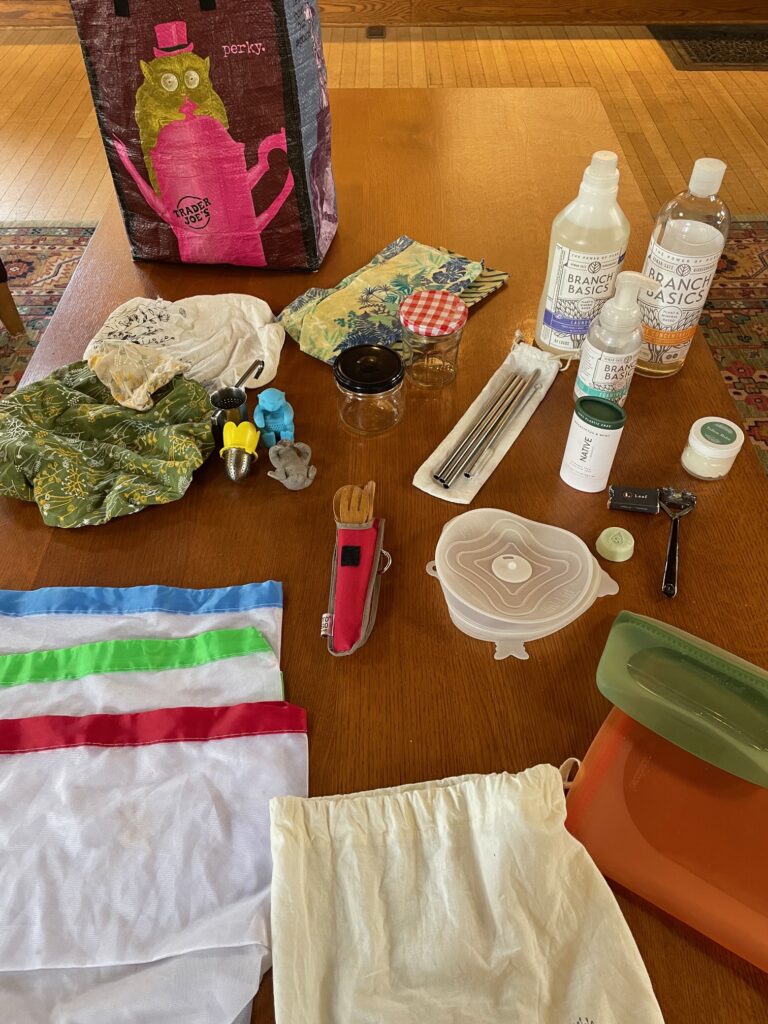Discovering Plastic-Free Options For Every Part of the Home

By Bina Thomson
The Norfolk Library’s Leslie Battis began her plastic-free journey during the pandemic. Finally having time to clear her kitchen cupboards, she decided it was time to radically reduce her household’s plastic consumption. She has been successful in drastically reducing plastic in her kitchen and continues to look for innovative plastic alternatives.
On July 18, Battis and I co-hosted “Plastic Free Possibilities,” a group conversation meant to inspire and suggest ways to use less plastic in one’s daily life. This discussion was part of the Norfolk Library’s ongoing campaign called “Plastic Free July,” inspired by the organization of the same name. Plastic Free July was started in 2011 by Rebecca Prince-Ruiz. It gained such traction that the organizers created the Plastic Free Foundation to raise awareness, educate and provide resources related to the goal of a plastic-free future.
Several items shared at the talk demonstrated alternatives to single-use plastics often found in the kitchen and the bathroom. For example, reusable tea strainers for loose tea are a great alternative to the plastic pyramid sachet tea bags produced by many tea companies. These sachets cannot be recycled or composted, and they release thousands of micro- and nano-plastics into the beverage. While plastic grocery bags have been banned throughout New England, thin plastic produce bags have remained because they provide a sanitary purpose. However, these bags are flimsy and cannot be reused or recycled. They also harm marine life such as sea turtles, various bird species and fish, who mistake them for tasty jellyfish. Shoppers can buy a variety of mesh produce bags to use instead; Battis showed the different sizes that she uses for fresh produce.
Other simple changes were explored, such as reusing glass mason or jelly jars for drinkware and substituting aluminum foil or beeswax wraps for plastic cling wrap. Reusable Ziplock-style bags by brands like Stasher, Qiline and Pampered Chef can replace single-use bags.
The group discussed many ways everyone can make a real difference by not buying plastic. The Berkshire Food Co-op in Great Barrington, for example, has a large bulk section that offers refills for honey, maple syrup, peanut butter, olive oil and dry pantry staples such as grains, beans, nuts, snacks and spices. Loose fruits and vegetables can be purchased, as well as bulk laundry and dishwashing detergent, shampoo, conditioner and soap. Shoppers can receive a five percent discount by bringing their own containers to the co-op. Guido’s Marketplace (Great Barrington) and Rooted Market (Winsted) also have similar self-serve bulk sections, although without cleaning products.
